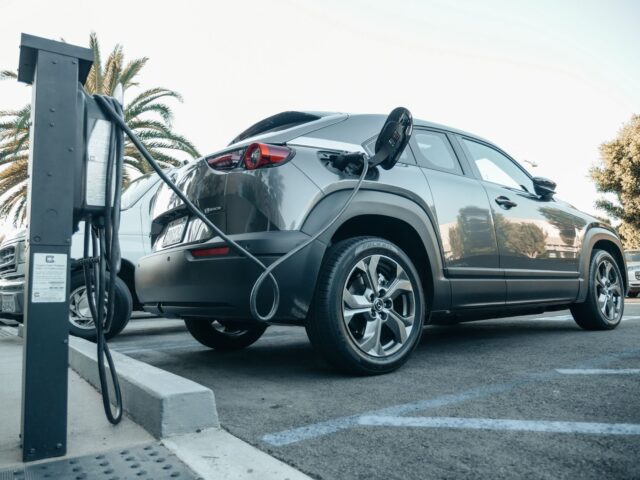UK drivers have been hit by the biggest ever daily rise in average diesel prices, after the cost per litre shot up by nearly 3p in just a day.
Data firm Experian Catalist revealed that the average cost of a litre of diesel reached 165.2p on Tuesday – up from 162.3p on Monday. This means that now, for the first time ever, it costs more than £90 to fill up an average family car with diesel.
With fuel costs rising, and millions in the midst of a cost of living crisis, now is the perfect time to assess your options when it comes to travel. One increasingly popular option is electric vehicle (EV) ownership, but can it really work for you? And how could it save you money?
James Andrews, Senior Personal Finance Editor at money.co.uk, said: “Buying an EV can be expensive, but the good news is that there are government subsidies to help you absorb the cost.
“The ‘Plug-in Car Grant’ gives you up to £1,500 off the price of a brand new low emission vehicle that costs under £50,000. Meanwhile, you can get up to £350 off the cost of installing an EV charger at your home through the government’s Electric Vehicle Homecharge Scheme (EVHS).
“These schemes are incentives designed to get more people buying EVs, so it’s unlikely that they will last forever. The closer we get to the ban on the sale of petrol and diesel vehicles in 2030, and the more drivers switching to EVs, the less the government will feel the need to offer financial perks.
“EV ownership also comes with handy tax breaks that can help keep costs down. All ‘pure’ electric vehicles are completely exempt from road tax, while if you drive a hybrid, then the amount of tax you pay will depend on your car’s carbon dioxide emissions.
“Meanwhile, if you use your EV for work, you can claim mileage back through the HM Revenue and Customs’ Approved Mileage Allowance Payments scheme (AMAP).
“EV ownership can save you from surging fuel prices with costs per mile around 50% lower, however, you still need to pay to charge your vehicle. Fees vary depending on where and when you charge, so you should use handy sites like ZapMap, which provides up-to-date and detailed charge point information when you’re out and about.
“While there are many positives to EV ownership, prospective buyers should be prepared to pay a premium for their vehicle. For example, an electric Peugeot 208 costs £29,760, compared with £18,645 for the cheapest petrol version.
“The main drawback of EVs is range anxiety, or the fear that your electric vehicle won’t have the range you need for your day to day life. Most electric cars will only be able to travel between 130 and 300 miles on a full charge, which, depending on the availability of charging points in your area, might cause you problems.
“Before you decide if an EV is right for you, you need to look closely at your current car usage. Calculate your average daily/weekly mileage so you can work out how much range between charges you’ll need. Check the number of charging points in your area, as well as at the locations you visit most regularly such as family homes, work etc.
“Finally, take into account the kind of roads you’re usually driving on. EVs work best on flat city roads, however if you’re regularly driving medium to long distances in hilly areas, or using motorways, you’re going to notice a difference in performance.




